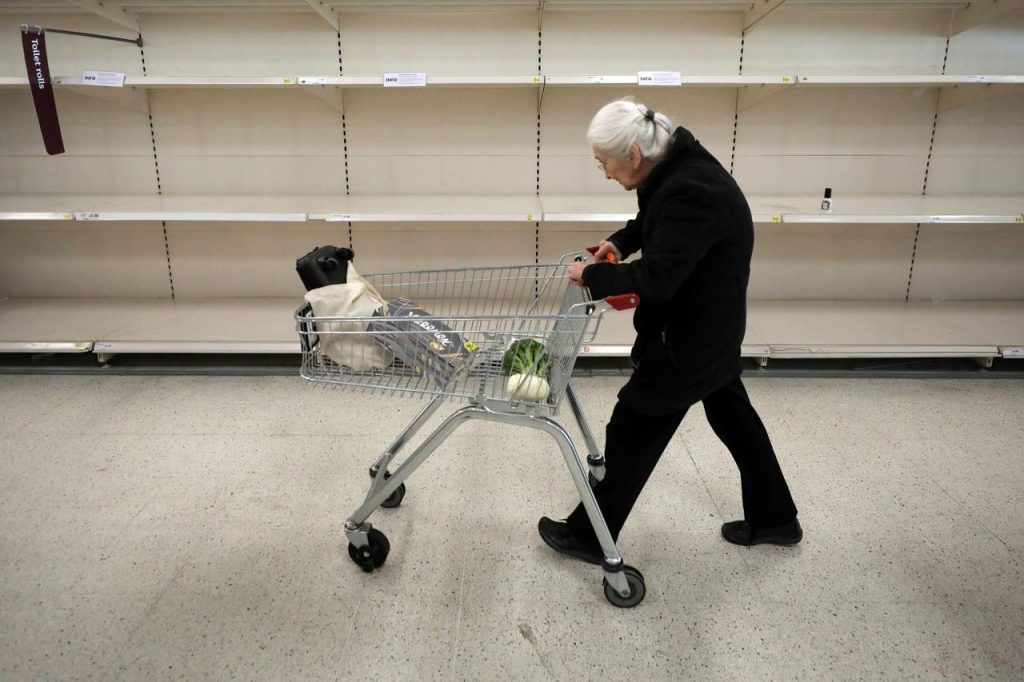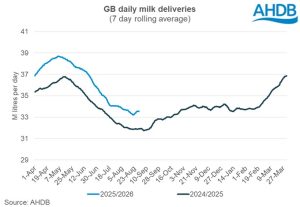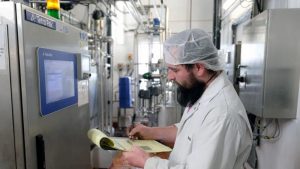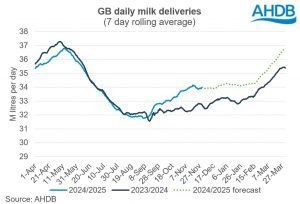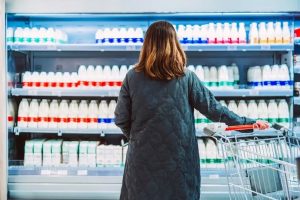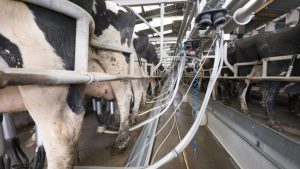
The spread of the coronavirus has triggered panic buying across the world and while European countries have restricted travel, British companies say supply chains importing fruit, vegetables, meat and fish are so far still functioning.
Reassurances from Prime Minister Boris Johnson, who has faced criticism for acting too cautiously, on Tuesday that there was no reason to stockpile went unheeded by spooked shoppers at supermarkets across the country.
Aisle after aisle was left empty, with just ice cream and chocolate Easter eggs remaining at many major stores, while huge queues snaked around some supermarkets, Reuters reporters said.
“It is relentless and demand is still rising,” David Potts, chief executive of No. 4 player Morrisons, told reporters, adding that the firm was facing “unprecedented challenges and uncertainty” due to the health crisis.
Morrisons’ underlying sales have soared about 15% year-on-year over the last two weeks.
“Yesterday’s like-for-like (sales rise) was higher than Monday’s, Monday’s was higher than Friday’s, last week’s was higher than the week before,” its chief operating officer Trevor Strain said.
Britain’s big grocers, including market leader Tesco, Sainsbury’s, Asda and Morrisons along with discounters Aldi and Lidl, have restricted purchases.
Tesco is allowing shoppers to buy just two packs of certain items such as dried pasta, tinned tomatoes and anti-bacterial cleaning products. Sainsbury’s and Asda are limiting customers to three of any one product.
“We are asking our customers to shop responsibly so that everyone has access to the essentials,” Asda said, adding that it would be temporarily closing cafes and pizza counters to free up space in its warehouses and capacity – a move also implemented by Sainsbury’s.
Reuters reported on Monday that supermarket groups were working on plans to streamline their operations to enable a depleted workforce to maintain basic provisions.
ENOUGH FOOD?
The government and supermarket bosses say there is enough food but that stores face demand that can only be compared to the pre-Christmas rush, an event they meticulously plan for.
“We have enough food coming into the system, but are limiting sales so that it stays on shelves for longer and can be bought by a larger numbers of customers,” Sainsbury’s CEO Mike Coupe said in a letter to customers.
Morrisons said it was inevitable there would be strain in the European supply-chain given the extraordinary demand, though hauliers said that so far the trucks and ships which bring food to much of Britain were still getting supplies through, despite lock-downs in Italy, Spain and France.
“How nations themselves respond to their own demand challenges and the movement of people will be something we’ll have to keep under review,” said Strain.
The supermarket industry says it is working closely with suppliers to keep food moving through the system and is making more deliveries to stores to get shelves re-stocked.
Supermarket industry sources said the government was only just starting to understand the enormity of the crisis.
It wants the government to lift restrictions on driver hours and relax both competition laws, which limit industry co-operation, and Groceries Supply Code of Practice (GSCOP) regulations, which they say slow the industry down.
